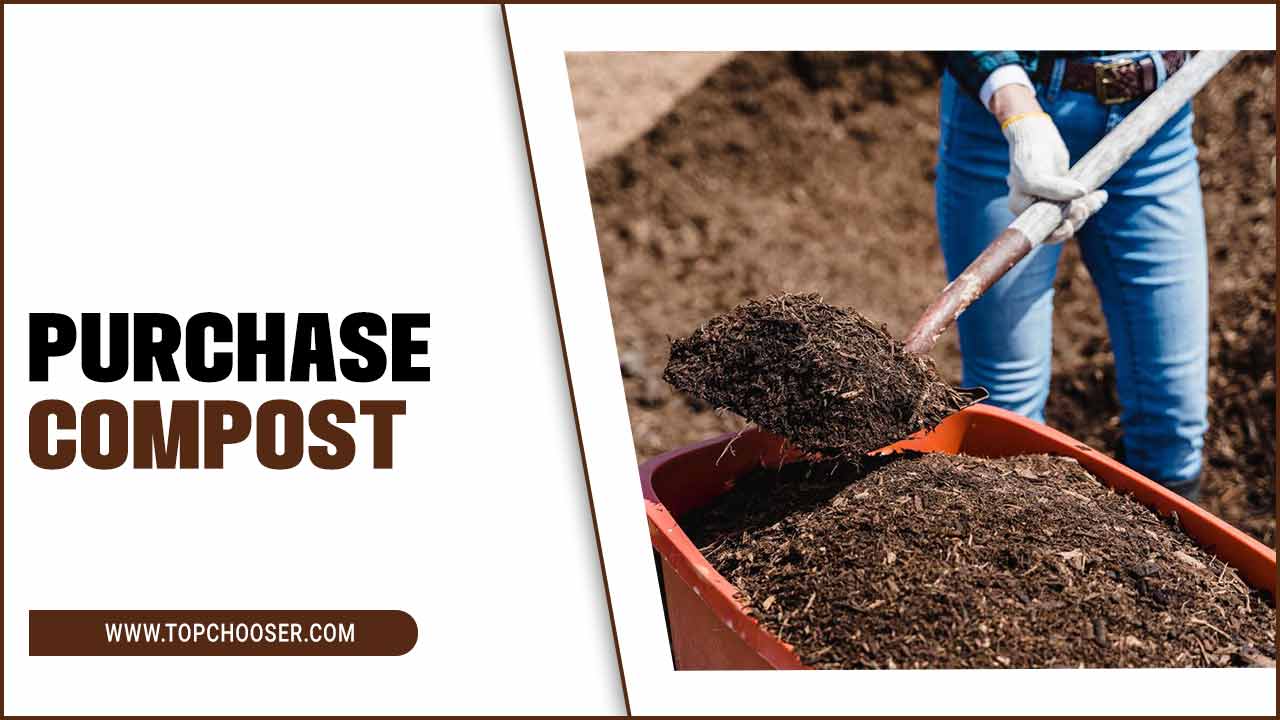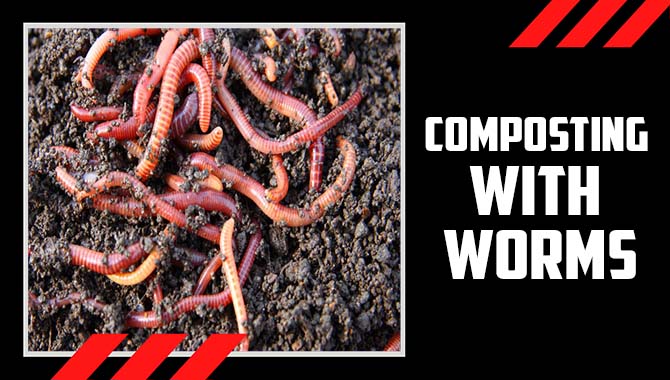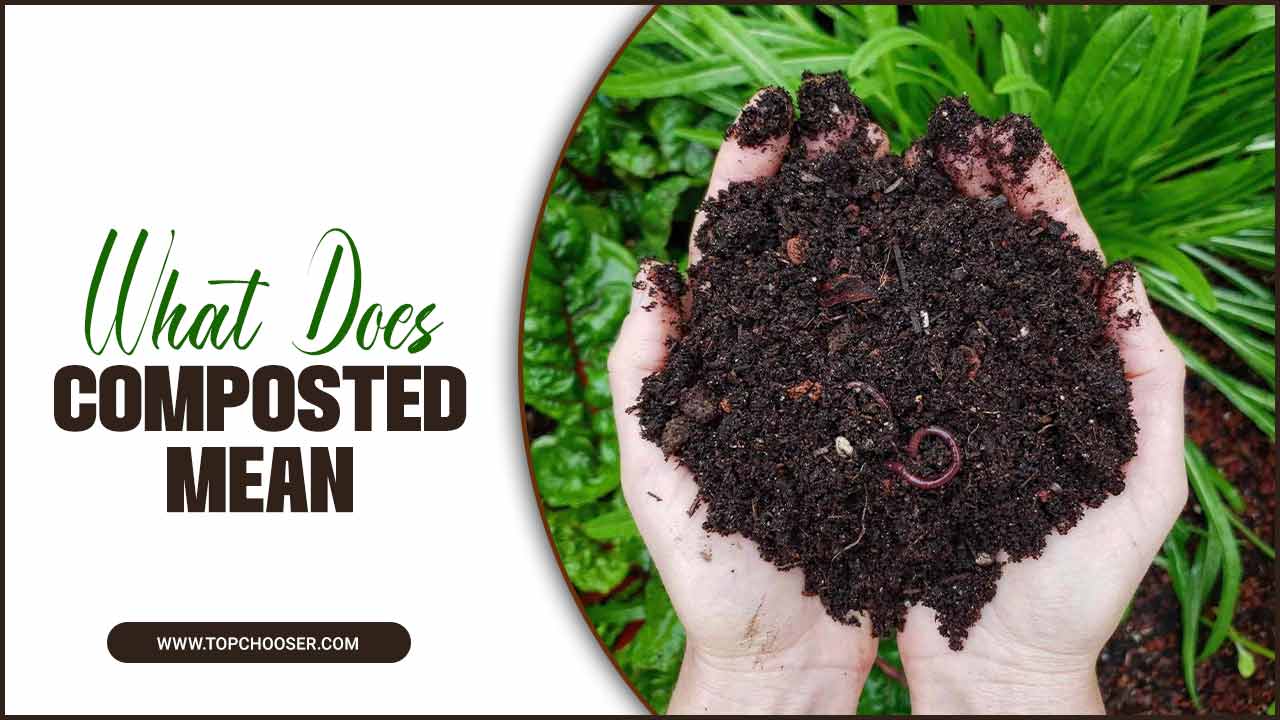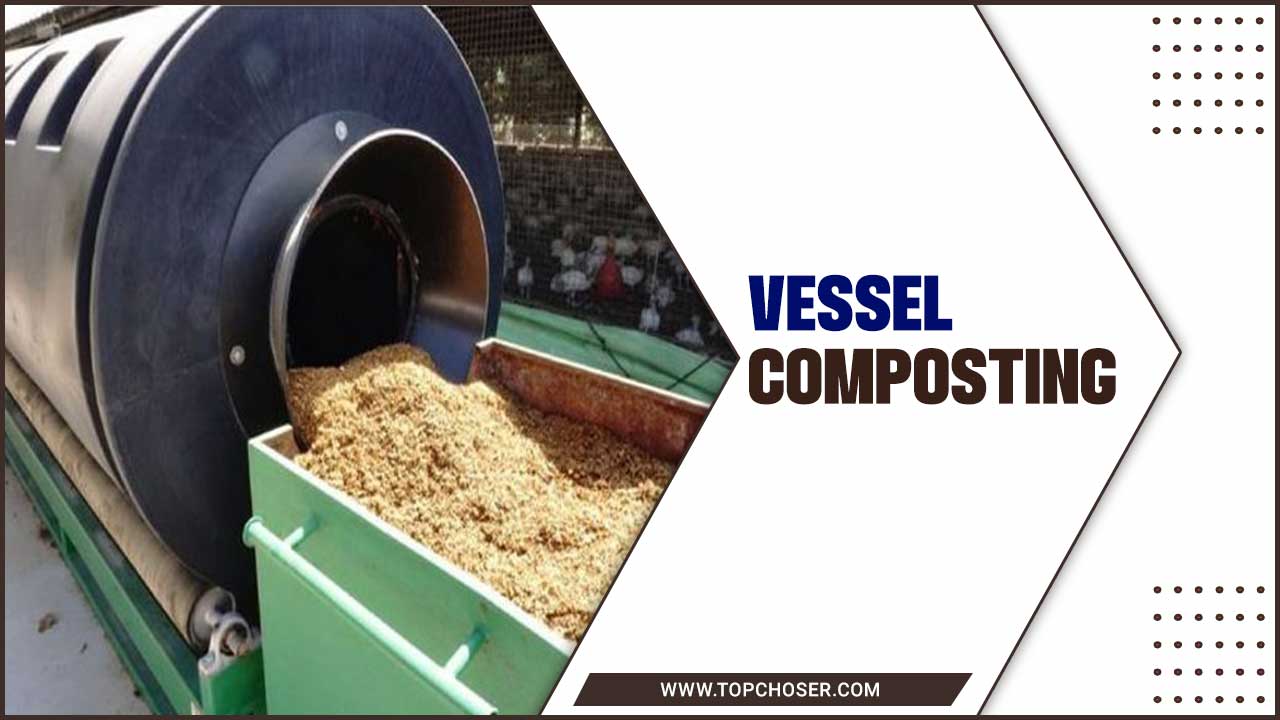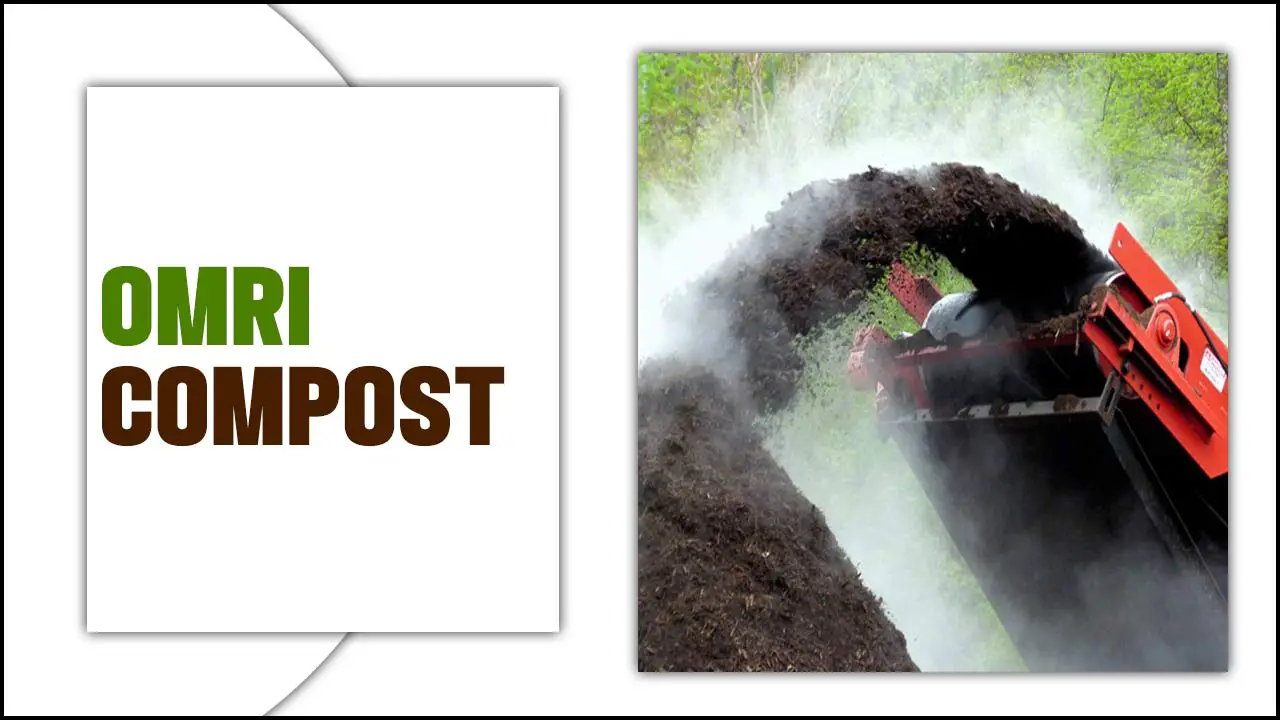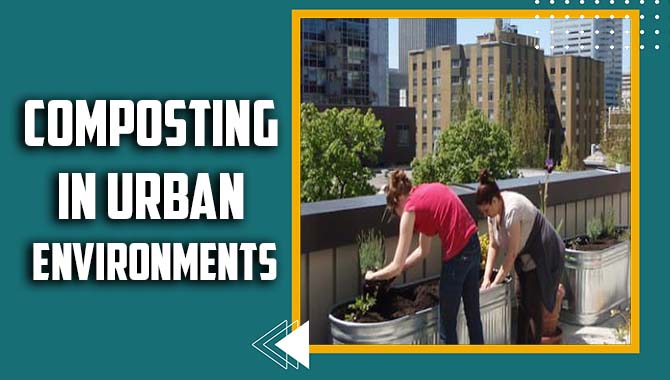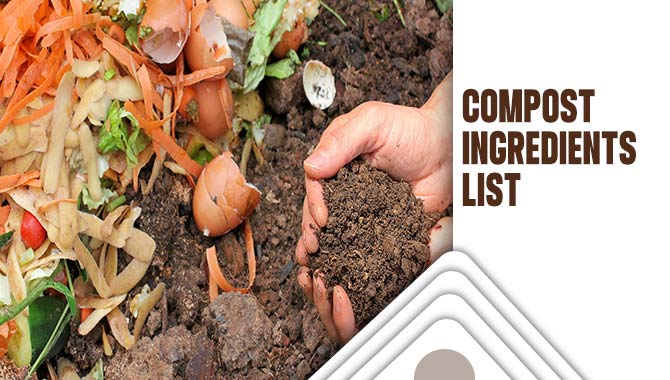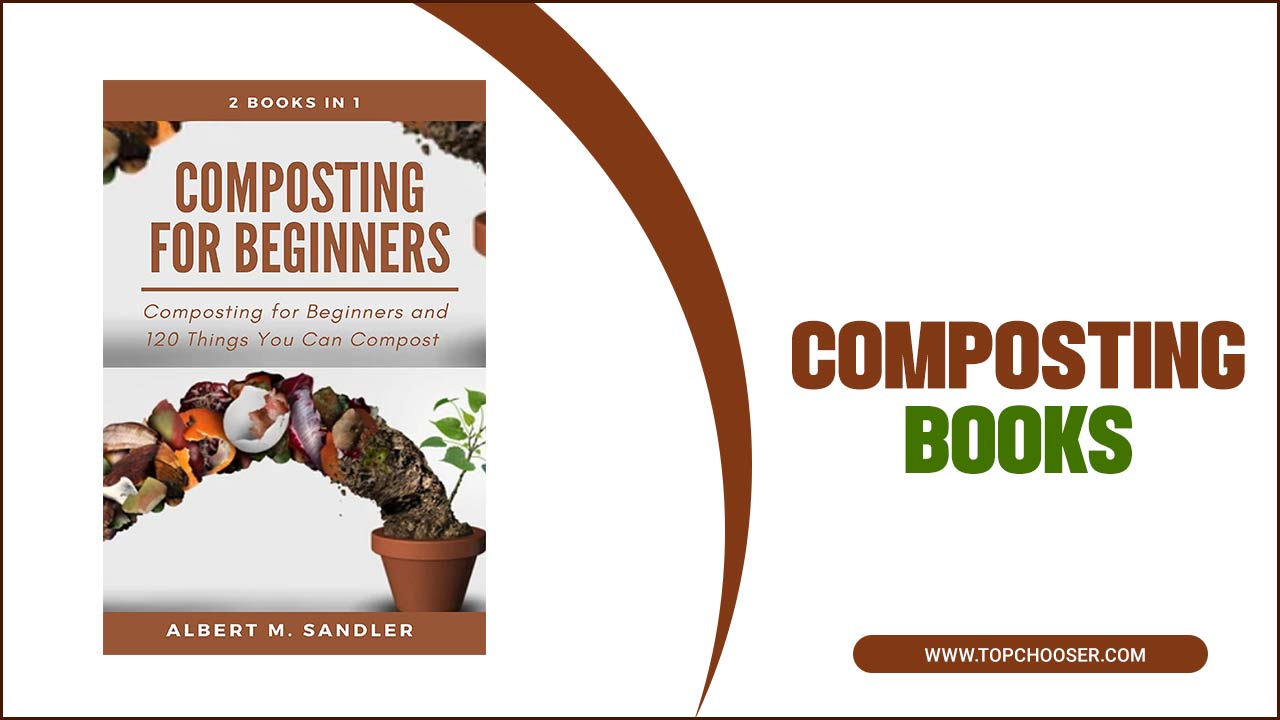Organic compost is a natural and environmentally-friendly way to improve soil health and fertility. It is created by combining organic materials, such as kitchen scraps, yard waste, and plant debris, in a compost pile or bin.
Over time, these materials break down through decomposition, resulting in nutrient-rich compost that can be used as a soil amendment. Here we will walk you through the step-by-step process of creating compost organic. From selecting the right organic materials to maintaining ideal temperature and moisture levels, we cover all aspects of composting.
Additionally, we provide troubleshooting tips for common issues that may arise during the composting process. Following our guide, you can create nutrient-rich compost to nourish your plants and promote a more sustainable lifestyle.
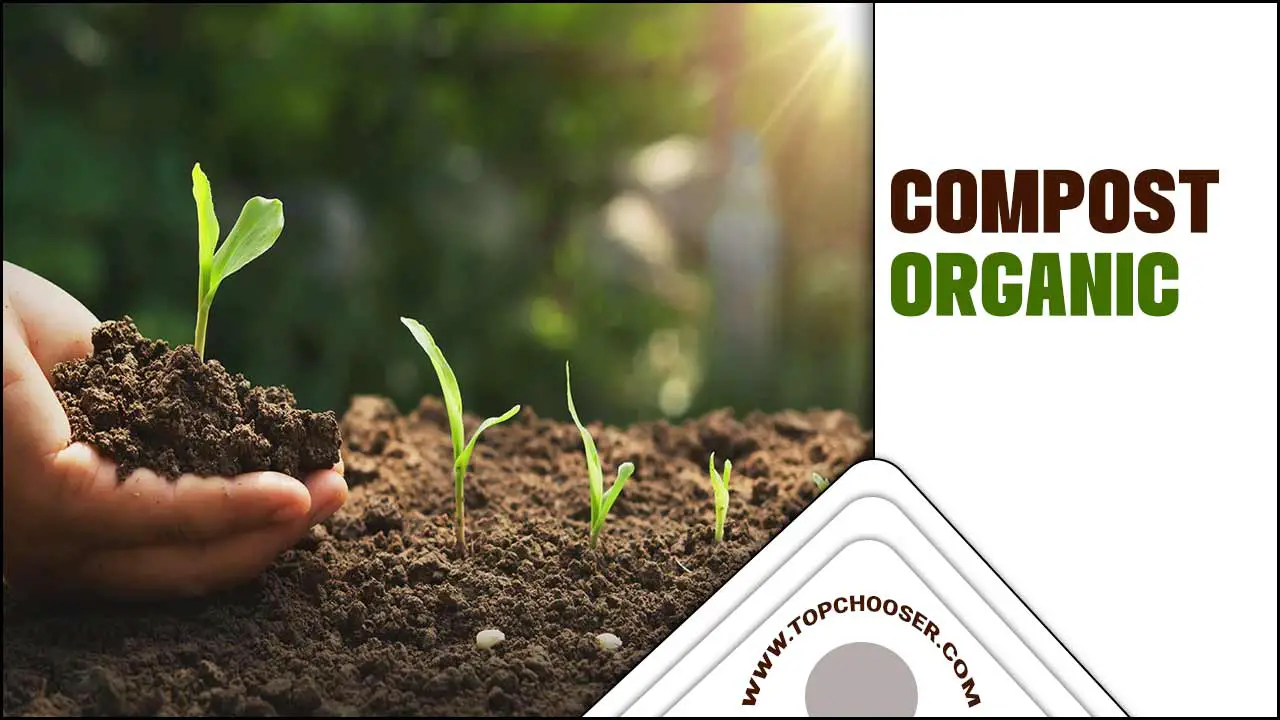
How To Make Compost Organic
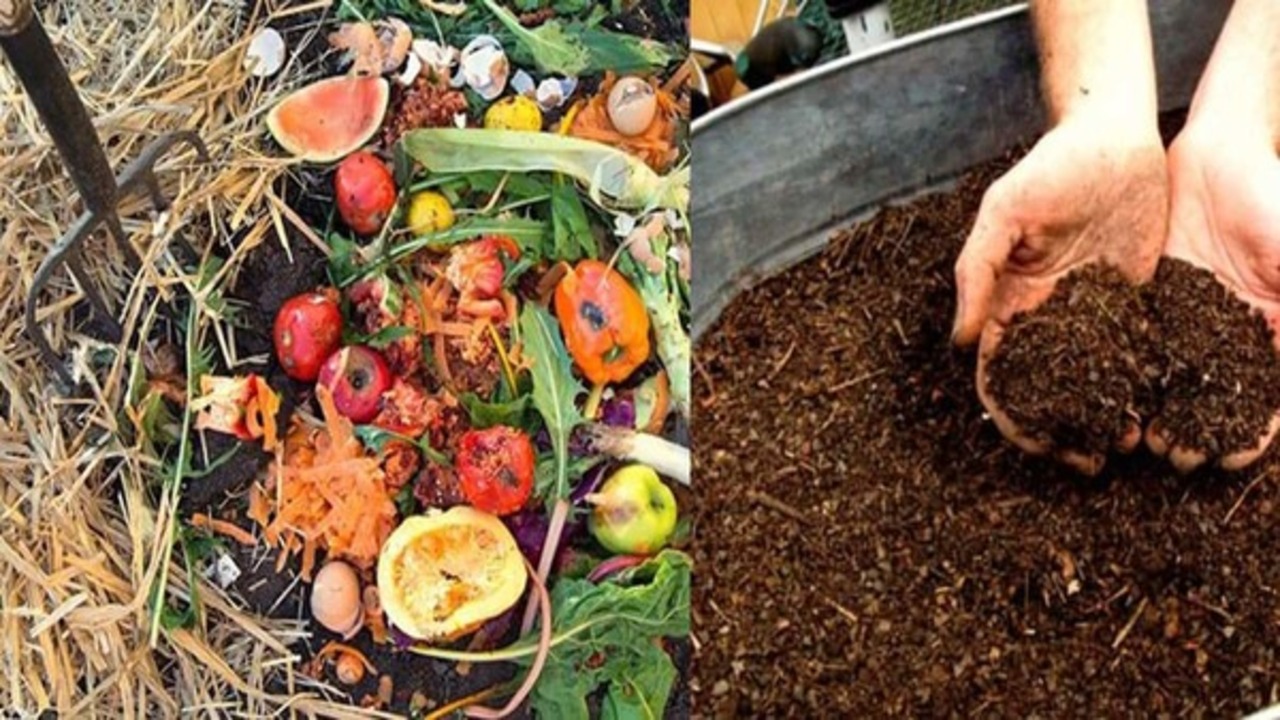
Organic compost offers many benefits for gardeners and the environment. It improves soil fertility by adding essential nutrients for healthy plant growth. Composting organic materials reduces waste and promotes a sustainable environment. It also enhances soil structure, improving water retention and drainage for plant health.
Organic compost can suppress diseases and pests, reducing the need for harmful pesticides. Ultimately, making compost organically is an environmentally friendly choice that benefits both the earth and human well-being. Here are the full process of making organic compost.
1. Gather Organic Materials
To create high-quality compost, gather organic materials such as kitchen scraps, yard waste, and garden trimmings. Avoid adding meat, dairy products, oils, or pet waste to prevent pests and harmful bacteria. Chop or shred larger materials for faster decomposition. Layer the organic materials in your compost bin, alternating between green (nitrogen-rich) and brown (carbon-rich) materials.
2. Create The Right Carbon To Nitrogen Ratio
To successfully compost, it’s important to achieve the right carbon-to-nitrogen ratio. The ideal ratio is 30 parts carbon to 1 part nitrogen. Layer carbon-rich materials like dry leaves and wood chips with nitrogen-rich materials like grass clippings and vegetable scraps. Regularly turning or mixing the compost helps speed up the process and distribute nutrients evenly. You can break down organic material into nutrient-rich compost for your garden with the right balance and maintenance.
3. Maintain The Right Temperature
To efficiently decompose in compost piles, maintaining the right temperature is crucial. The ideal range is 120-160 degrees Fahrenheit. Regularly turning and aerating the pile helps regulate the temperature. Using a mix of green and brown materials also helps. Monitor the temperature with a compost thermometer for optimal decomposition. By paying attention to the temperature, you can create an environment encouraging nutrient-rich compost creation.
4. Add Compost Activators
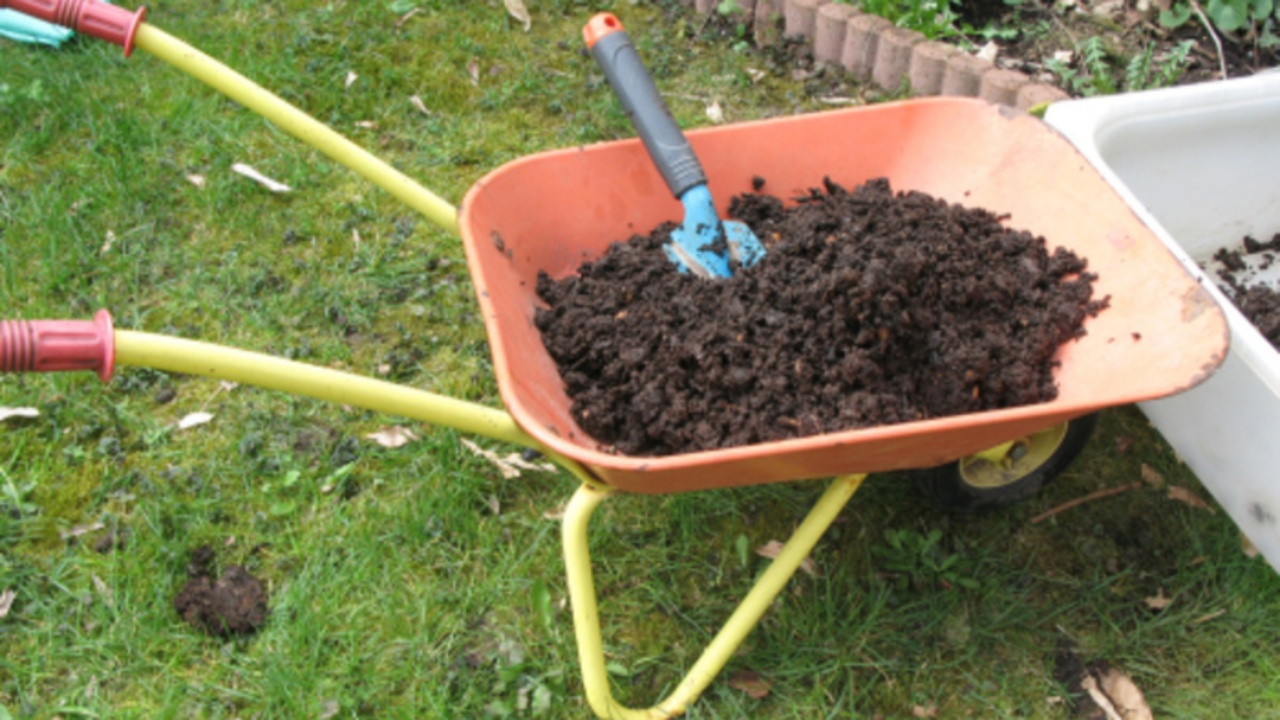
Add compost activators like manure, coffee grounds, grass clippings, and vegetable scraps to speed up compost decomposition. These introduce beneficial microorganisms for efficient breakdown. Maintaining a balanced mix of green and brown materials is crucial for moisture and aeration levels.
Regularly turning the pile distributes activators and promotes even decomposition. By using activators and managing your compost pile effectively, you can create nutrient-rich compost for healthy plant growth.
5. Manage Your Compost Pile
To effectively manage your compost pile, start by choosing a suitable location. It should be well-drained and receive partial sunlight. Gather organic waste materials like food scraps, yard waste, and paper products. Avoid meat, dairy, and oily substances, as they attract pests. Layer the materials in your compost pile, alternating between green (nitrogen-rich) and brown (carbon-rich) materials such as grass clippings and leaves.
Moisten the pile regularly to maintain a moist environment. Turn it with a garden fork or shovel every few weeks to aerate it. Monitor the temperature with a thermometer, aiming for 110-160°F (43-71°C). Following these steps, you can successfully manage your compost pile and create nutrient-rich compost for gardening needs.
6. Monitor Moisture Levels
Proper moisture levels are crucial for successful composting. The ideal moisture level is similar to a damp sponge. Too much moisture can cause waterlogging and unpleasant odours, while dry compost slows decomposition. Regularly check the pile and add water or dry materials to monitor and adjust moisture levels. Balancing moisture creates an optimal environment for composting, encouraging microorganism growth and organic matter breakdown.
7. Aerate The Compost Pile
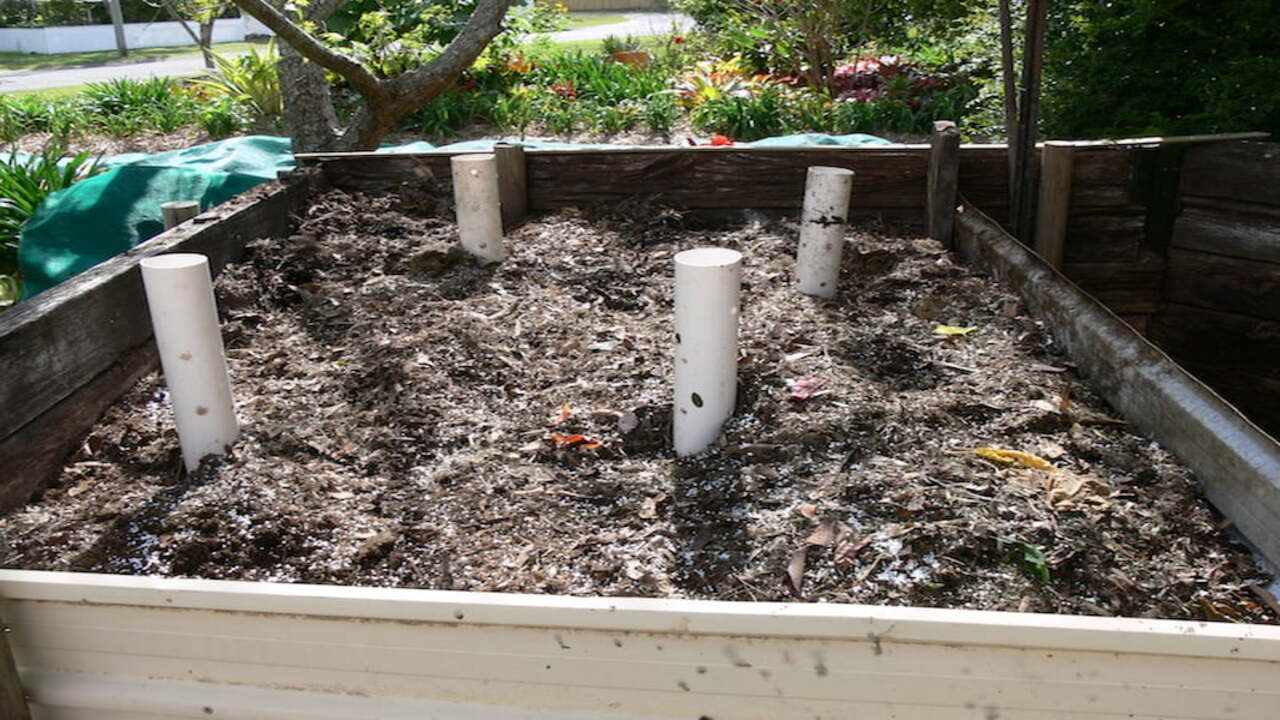
Aeration is crucial in composting, providing oxygen to microorganisms that break down organic materials. To achieve this, mix the pile every 1-2 weeks using a pitchfork or compost-turning tool. This creates air pockets, speeding up decomposition and producing high-quality compost. Adding bulky materials like straw or wood chips enhances aeration by increasing air circulation. Regular turning and proper aeration accelerate the breakdown and create nutrient-rich compost for your garden.
8. Turn The Pile Regularly
Regularly turning the compost pile promotes aeration and speeds up decomposition. Use a pitchfork or shovel to mix the materials for proper blending. Ideally, turn the pile every 1-2 weeks, but even once a month can be beneficial.
Turning distributes moisture evenly, aiding in the breakdown of organic matter. It also helps create nutrient-rich compost faster. Remember to maintain a balanced carbon-to-nitrogen ratio, ensure sufficient aeration, and manage moisture levels for successful composting.
9. Monitor Progress
To ensure proper decomposition and nutrient-rich compost, monitor your compost pile regularly. Use a compost thermometer to check the temperature, aiming for 120-160°F (49-71°C). Also, observe the moisture level, aiming for a wrung-out sponge consistency.
Adjust with water or dry materials as needed. Watch out for unpleasant odours indicating a lack of oxygen. Finally, look for signs of decomposition like the dark colour and crumbly texture. Regular monitoring and adjustments will optimize compost production.
10. Harvest The Compost
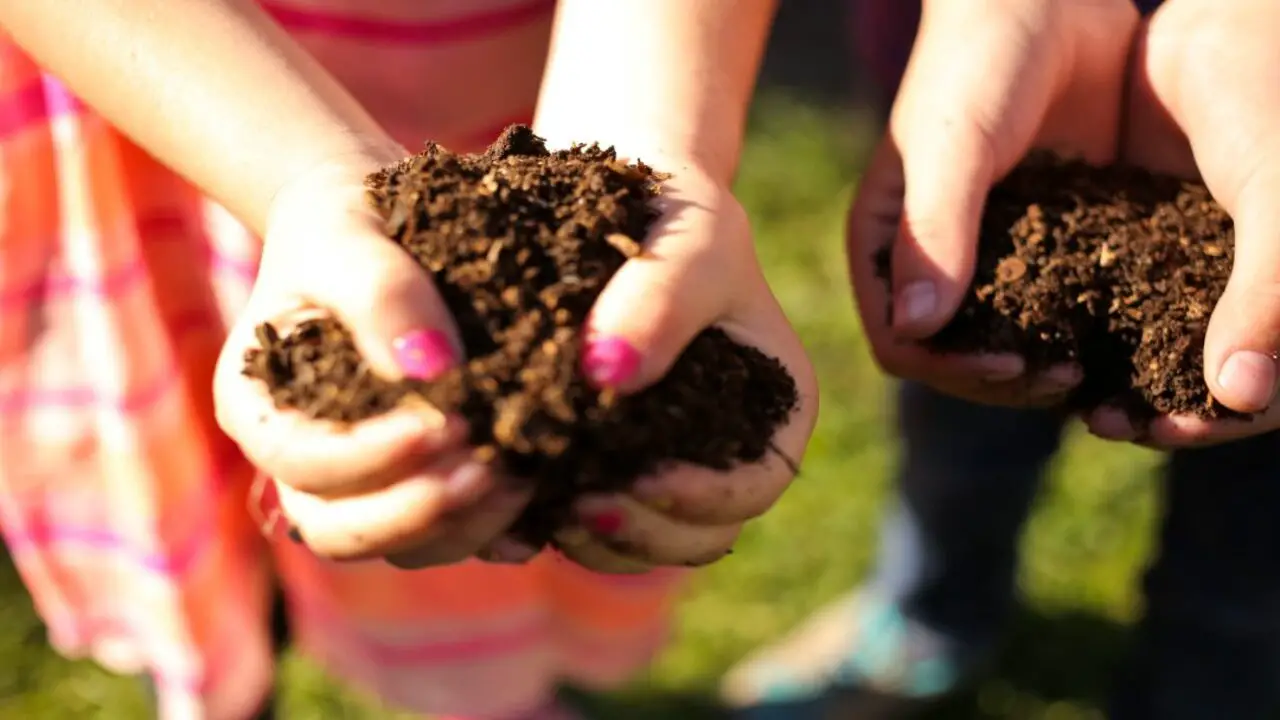
Harvesting the compost is the final step in the composting process. It will be harvested once the compost has a dark, crumbly texture and an earthy smell. Start by removing any large pieces or undecomposed materials from the compost pile. Use a garden fork or shovel to turn over the pile, breaking up clumps and ensuring thorough decomposition.
Collect the finished compost in a separate container or spread it directly onto your garden beds as a nutrient-rich soil amendment. Leave some of the finished compost in the bin as a starter for your next batch. Harvesting the compost completes the organic recycling and provides “black gold” for your gardening needs.
11. Collecting Organic Matter
When collecting organic matter for composting, there are a few key points to remember. Firstly, gather various organic materials such as fruit and vegetable scraps, coffee grounds, eggshells, and yard waste like grass clippings and leaves. It’s important to avoid adding meat, dairy products, or oily foods to your compost pile, as these can attract pests. To aid in the decomposition process, chop or shred larger pieces of organic matter.
When layering the materials in your compost bin or pile, alternate between nitrogen-rich “green” materials (like kitchen scraps) and carbon-rich “brown” materials (like leaves). Keep the pile moist but not soggy by watering it regularly. Additionally, turning the compost pile with a pitchfork or shovel every few weeks will help aerate it and speed up decomposition.
12. Composting Basics
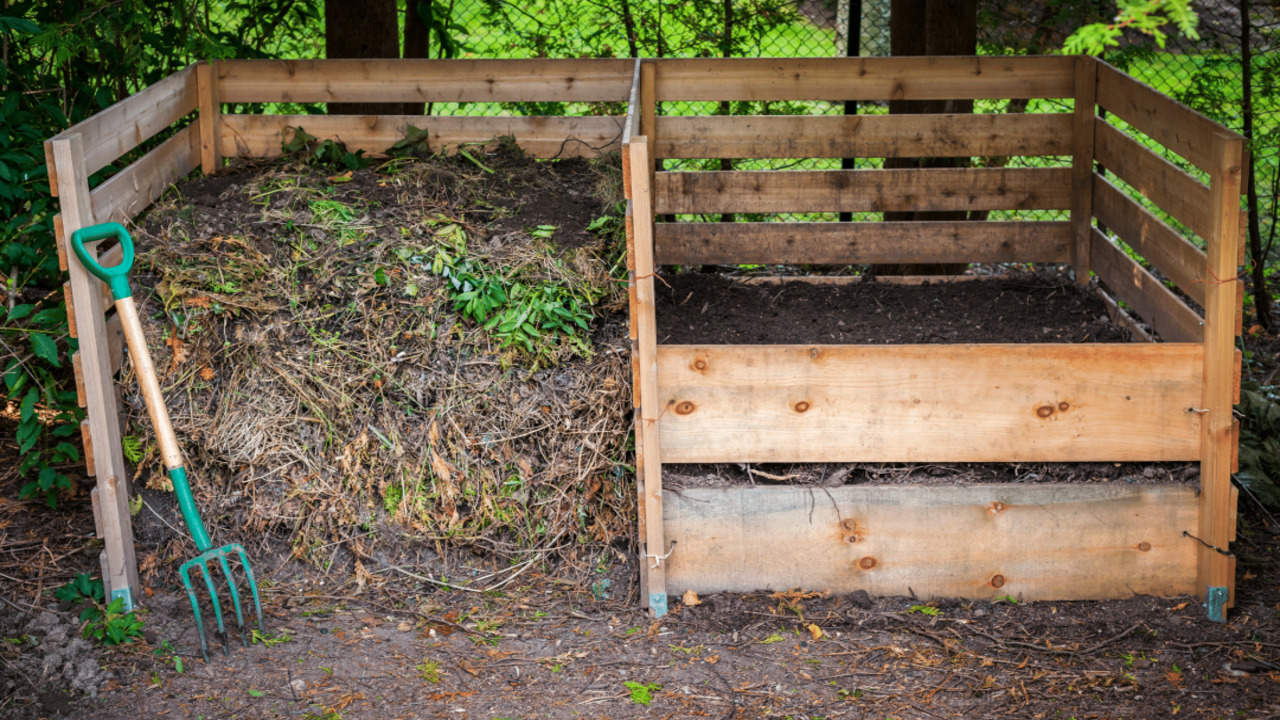
Composting is a natural process that turns organic waste into nutrient-rich soil. To start, gather “green” materials like fruit and veggie scraps, and “brown” materials like leaves and twigs. Layer them in a compost bin, maintaining moisture by adding water.
Regularly turn the compost to speed up decomposition. Over time, it breaks down into dark, crumbly compost for enriching garden soil. Composting reduces waste and creates sustainable fertilizer for plants. It’s essential for gardeners looking to improve soil health and promote growth.
13. Adding Carbon To The Compost
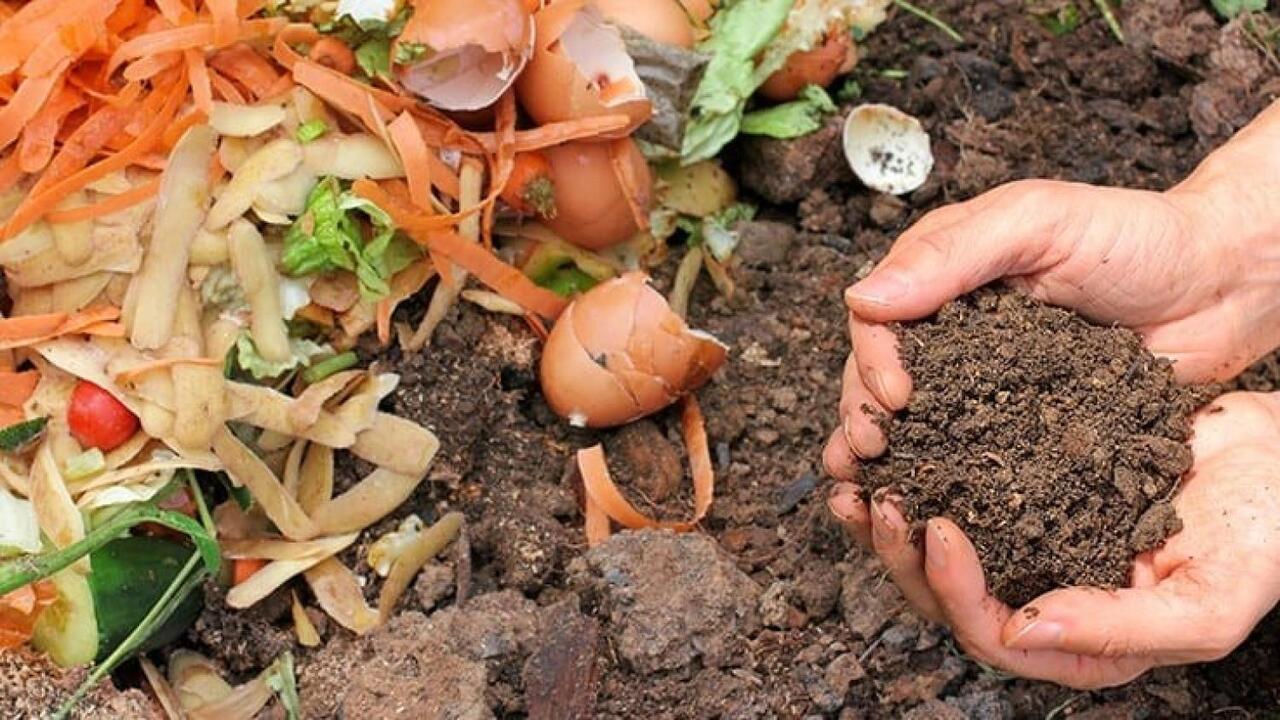
Adding carbon to the compost is a crucial step in the composting process. Carbon-rich materials, like leaves, straw, and cardboard, help create a balanced carbon-to-nitrogen ratio, providing energy for the microorganisms involved in decomposition. Shredding or chopping larger carbon-rich materials into smaller pieces for faster breakdown is recommended.
Layering these materials with nitrogen-rich ones, such as kitchen scraps and grass clippings, creates a well-balanced compost pile. Regularly turning or aerating the pile ensures even distribution and proper decomposition of the carbon-rich materials.
This results in the production of nutrient-rich compost, which can be used as an organic fertilizer to enhance soil structure and promote plant growth. Adding carbon to your compost pile is essential to creating high-quality compost.
14. Water Retention And Proper Moisture Levels
Proper moisture levels are a crucial aspect of successful composting. Wat er retention is essential for breaking down organic materials to create nutrient-rich compost. It is important to maintain a moist compost pile without it becoming soggy. To ensure proper moisture levels, periodically check the compost pile and add water if it feels dry.
However, overwatering should be avoided as it can lead to an unpleasant odour or anaerobic conditions in the compost pile. Mixing the compost pile regularly helps distribute moisture evenly throughout the pile. It is also necessary to consider weather conditions – during hot and dry periods, more frequent watering may be required, while rainy periods may necessitate less watering.
Tips For Troubleshooting Common Problems
Adjust the carbon-to-nitrogen ratio and regularly turn the compost to address odour issues in your compost pile. Avoid adding meat or dairy products that cause foul smells. Maintain proper moisture levels by keeping the compost damp but not overly wet. Mix materials well and use activators like grass clippings or manure to speed up decomposition.
Prevent pest infestations by using a secure bin or cover, avoiding food scraps that attract pests, and turning the compost regularly. Resolve excessive moisture by adding dry materials like leaves or shredded paper. Increase heat generation by increasing the size of the compost pile, adding more nitrogen-rich materials, and turning it regularly.
Conclusion
Making compost organic is a rewarding and sustainable practice that benefits your garden and the environment. By following the step-by-step guide we have provided, you can create nutrient-rich compost that will improve the health and fertility of your soil. Remember to gather various organic materials, maintain the right carbon-to-nitrogen ratio, monitor temperature and moisture levels, and turn the pile regularly.
You can ensure successful composting by troubleshooting common problems and understanding the benefits of organic composting. Start making your organic compost today and reap the rewards of healthier plants and a greener planet.
Frequently Asked Questions
[rank_math_rich_snippet id=”s-d6c33400-90b1-4272-9248-beda3963d6a8″]

I am passionate about home engineering. I specialize in designing, installing, and maintaining heating, ventilation, and air conditioning systems. My goal is to help people stay comfortable in their homes all year long.

